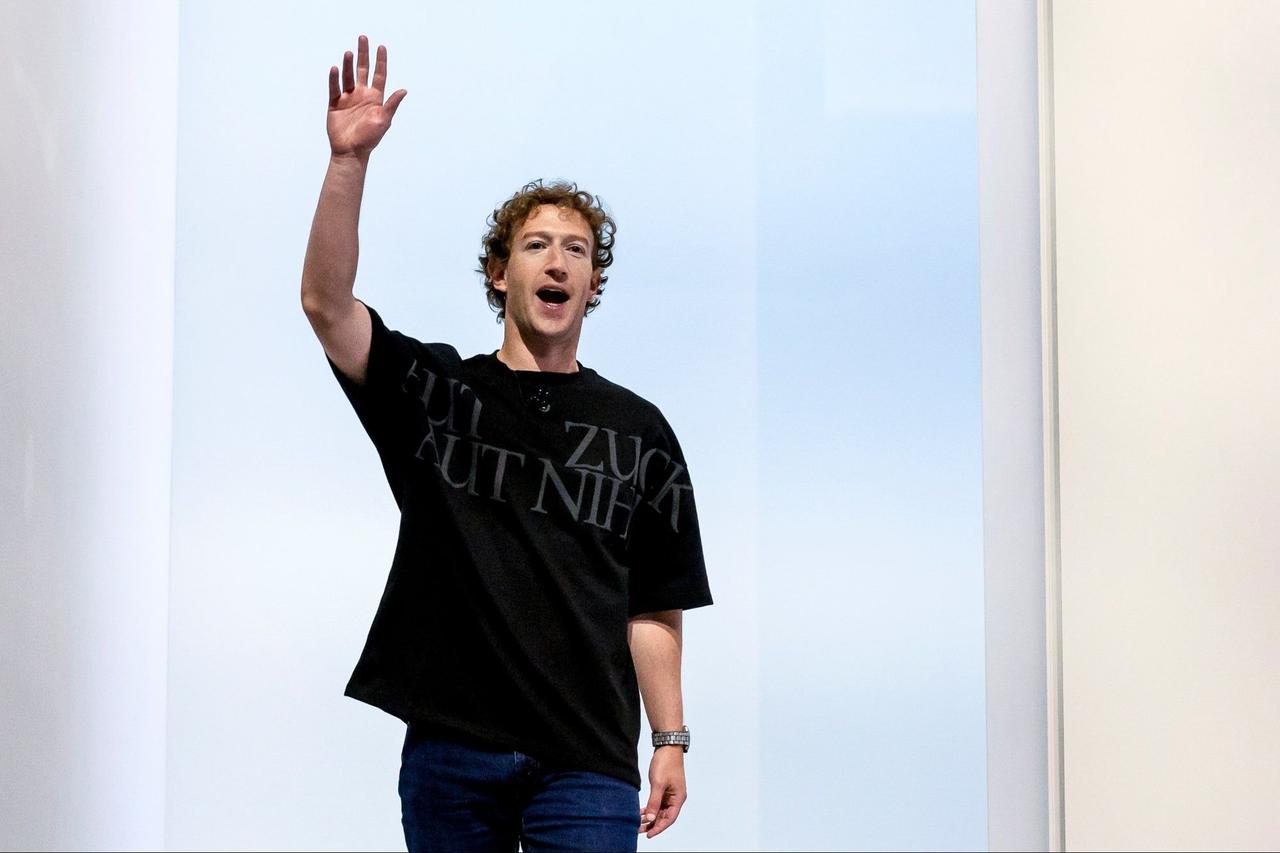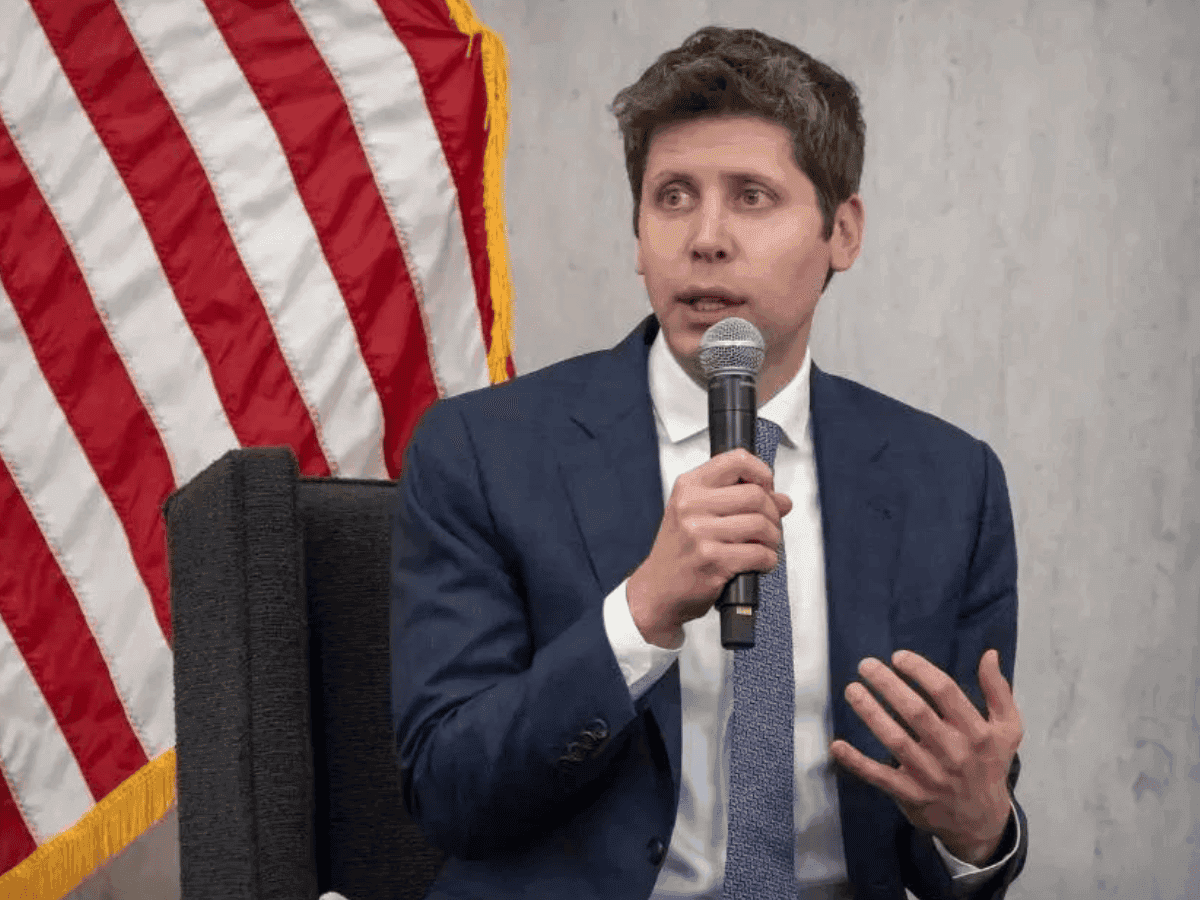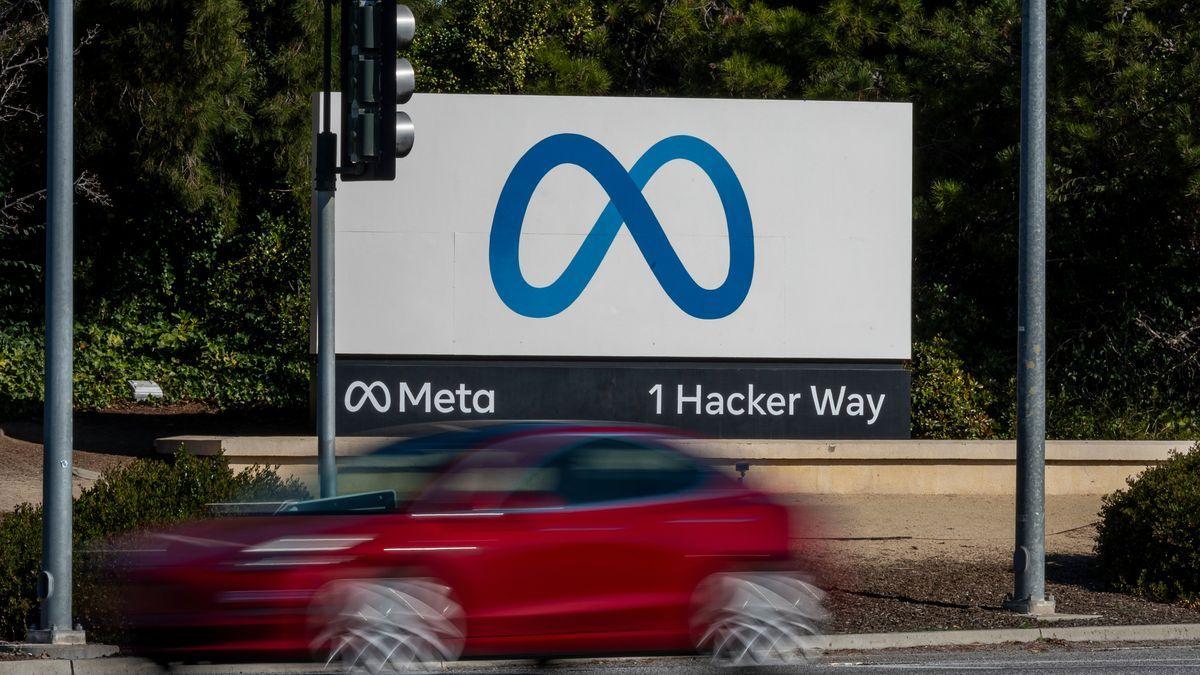AI Talent War Intensifies: Meta's Billion-Dollar Offers and OpenAI's Stance on Industry Competition
6 Sources
6 Sources
[1]
Sam Altman says the AI talent war is a bet that a 'medium-sized handful of people' will make superintelligence breakthroughs
The amounts of money being offered to hire AI geniuses is mind-boggling, as tech giants like Meta, Microsoft, Google and OpenAI fight over a tiny talent pool in their race to achieve the next breakthrough. And the cutthroat competition doesn't look like it will ease anytime soon. "Definitely this is the most intense talent market I have seen in my career," OpenAI CEO Sam Altman told CNBC on Friday. "But if you think about the economic value being created by these people and how much we're spending on compute, you know, maybe the market stays like this. I'm not I'm not totally sure what's gonna happen, but it is a crazy intense comp for a very small number of people right now." Exactly how small is that group of people, and what do they know that others don't, CNBC's Andrew Sorkin asked. "The bet, the hope is they know how to discover the remaining ideas to get to superintelligence -- that there are going to be a handful of algorithmic ideas and, you know, medium-sized handful of people who can figure them out," Altman replied. That would help explain the astronomical amounts companies are willing to spend to poach AI talent, with one offer reportedly topping $1 billion. Altman said in June that Meta had been making "giant offers to a lot of people on our team," some totaling "$100 million signing bonuses and more than that [in] compensation per year." Meta is also investing $14.3 billion in Scale and hired the startup's CEO, Alexandr Wang, for a superintelligence team. While immense fortunes are being thrown at a handful of top engineers, Altman estimated the number of people smart enough to make superintelligence breakthroughs is actually much, much larger. "I bet it's much bigger than people think, but you know some companies in the space have decided that they're going to go after a few shiny names," he told CNBC. "I think there's probably many thousands of people that we could find and probably tens of thousands or hundreds of thousands of people in the world that are capable of doing this kind of work."
[2]
Mark Zuckerberg Reportedly Made One Person a $1.5 Billion Job Offer -- and Was Rejected. Here's How Google, Microsoft, and OpenAI Are Competing with Meta in the AI Talent Wars.
Skyrocketing salaries and secretive recruiting efforts have taken over Big Tech as the AI talent wars heat up, with companies including Meta, Google, and Microsoft vying for employees by offering highly competitive compensation. A key player in the battle is Meta CEO Mark Zuckerberg, 41, who reportedly offered Andrew Tulloch, an AI researcher and co-founder of Thinking Machines Lab, a compensation package worth as much as $1.5 billion over at least six years. The Wall Street Journal reported that Tulloch turned down the offer, but plenty of others have taken the money and joined Zuckerberg's tech giant. Related: Meta Is Reportedly Offering Up to Nine-Figure Pay for Researchers on Its New Superintelligence AI Team Scale AI co-founder and former CEO Alexandr Wang, 28, joined Meta after the company paid $14.3 billion for a 49% stake in his company. In a June memo, Zuckerberg called Wang "the most impressive founder of his generation," and said that in addition to leading Meta's superintelligence team, Wang would also be Meta's Chief AI Officer. Zuckerberg also highlighted the massive scale of talent poaching happening in Silicon Valley by revealing that other members of his superintelligence group, now called TBD Labs, per a Thursday report from The Wall Street Journal, include researchers poached from Google, OpenAI, and Anthropic. Meanwhile, Apple has also lost talent to Meta, with four AI researchers joining Zuckerberg's company in July alone. Meta offered former Apple manager Ruoming Pang a reported $200 million compensation package in early July to join Meta's superintelligence effort -- and Pang accepted. Zuckerberg reportedly played a personal role in recruiting the TBD Labs team, secretly inviting potential hires to join him at his homes in Palo Alto and Lake Tahoe to discuss offers. According to Bloomberg, Zuckerberg even rearranged the seating arrangements in Meta's offices to position the superintelligence team closer to him. Related: Google Is Paying $2.7 Billion to Reportedly Rehire an Early Employee Who Built an AI Chatbot Before ChatGPT Microsoft AI CEO Mustafa Suleyman has been looking at his former workplace, Google, for fresh AI talent to join the Microsoft team. The Wall Street Journal reported this week that Suleyman, who worked at Google for over a decade and rose to lead the applied AI team, has been copying Zuckerberg by reaching out to recruits personally and offering them better pay. So far, Suleyman's efforts have resulted in Microsoft poaching at least 24 employees from Google, mostly from the DeepMind AI group, per WSJ. The poaching includes executives and researchers alike, including Google's former Vice President of Engineering, Amar Subramanya. The median salary at Microsoft last year was $193,744, according to a proxy filing with the U.S. Securities and Exchange Commission. Google signed a $2.4 billion deal with AI coding startup Windsurf last month to bring key talent to the Google DeepMind AI team. Windsurf's co-founder and CEO, Varun Mohan, co-founder Douglas Chen, and a select group of other researchers from the startup joined Google. As part of the deal, Google obtained a nonexclusive license to Windsurf technology. Google did the same thing last year, signing a $2.7 billion agreement with Character.AI, a personalized superintelligence startup, in exchange for access to talent, particularly Character AI co-founders Noam Shazeer and Daniel De Freitas. In this deal, too, Google received a nonexclusive license to the startup's technology. OpenAI CEO Sam Altman, 40, said in mid-June that Meta had been offering its staff $100 million signing bonuses and "even more than that" in overall compensation in an attempt to poach them away. Meta's Chief Technology Officer, Andrew Bosworth, refuted the claim. By the end of June, eight OpenAI researchers had taken the offer and joined Meta's superintelligence team. In a June 28 memo to staff, OpenAI Chief Research Officer Mark Chen likened the situation to someone breaking into his home and stealing something. He promised that OpenAI was "recalibrating" compensation in response to the offers while keeping pay "fair" for everyone.
[3]
This Former OpenAI CTO Withstood Meta's Billion-Dollar Recruitment Blitz
Meta reportedly also attempted to poach the startup's employees Meta's ambition to dominate the global artificial intelligence (AI) race has reached dramatic new heights in 2025. Not only did the Menlo Park-based tech giant restructure its entire AI division to create the new Superintelligence Labs, but it also began offering eight-figure salaries in a frenzied attempt to poach talent from rivals. The recruitment offensive has largely paid off, with the company successfully attracting employees from prominent companies such as OpenAI, Google DeepMind, and Anthropic. These moves made strategic sense. The targets were senior researchers and engineers in pivotal roles, building products that directly competed for the same slice of the AI market pie Meta was chasing. By poaching this talent, Meta strengthened itself while weakening its rival -- one of the oldest tricks in the Silicon Valley playbook. But then, according to The Wall Street Journal, Meta CEO Mark Zuckerberg unexpectedly set his sights on a startup that neither had a product on the market nor directly competed with the tech giant. However, Zuckerberg was reportedly so fascinated with this startup that he offered to buy it. Despite not having a product, a prototype, or a market-ready technology, the co-founder and CEO of the company reportedly refused the acquisition request. Frustrated, Zuckerberg turned his attention to the company's 50 employees, offering them extravagant compensation packages, WSJ reported, citing people familiar with the matter. Meta reportedly offered the company's other co-founder, Andrew Tulloch, a compensation package worth $1 billion (roughly Rs. 8,700 crore) over six years, including bonuses and stock performance. Tulloch said no. All of the other employees declined the pay cheques as well. If WSJ's sources are to be believed, this marked the first overwhelming defeat in Meta's aggressive AI talent war, and at the centre of it all was the CEO of the Thinking Machines Lab, Mira Murati. Born in 1988 in Albania, Murati moved to Canada for her education and later to the United States, where she earned dual degrees: a Bachelor of Arts from Colby College in 2011 and a Bachelor of Engineering from Dartmouth College in 2012. After working at Tesla as a product manager on the Model X and a brief stint at the augmented reality startup Leap Motion, she joined OpenAI in 2018. She was promoted to Vice President of Applied AI and Partnerships in 2020. In May 2022, Murati was elevated to the role of Chief Technology Officer (CTO). In that capacity, she oversaw development of OpenAI's most influential products, including ChatGPT, DALL-E, Codex, and Sora. She also emerged as a leading voice on AI safety and aligning large language models with human values. Murati's name made headlines in November 2023, when she briefly served as interim CEO of OpenAI following Sam Altman's removal by the board. However, this lasted merely three days, as she was replaced by Emmett Shear, who was himself removed when Altman was reinstated five days later. Murati was once again made the CTO of the company. She stepped down in September 2024 and went on to found Thinking Machines Lab in February 2025. As mentioned earlier, the startup, which is structured as a public benefit corporation, has not yet announced a product. However, the company's website describes its mission as developing human-AI collaboration, with an emphasis on building multimodal, flexible, adaptable, and personalised systems that work alongside people. Despite operating in stealth, Thinking Machine Lab raised $2 billion (roughly Rs. 17,400 crore) in its initial funding round led by Andreessen Horowitz, Nvidia, AMD, and Cisco. In stepping away from OpenAI and rejecting one of the most aggressive hiring plays the AI industry has seen, Murati has turned complete focus to Thinking Machines Lab, a company that continues to operate in stealth, yet attracts capital and talent at scale. What exactly she is building remains unclear, but in Silicon Valley, that kind of silence often speaks volumes.
[4]
Sam Altman: AI firms chasing only a few "shiny names" - The Economic Times
Though the CEO of the AI major, OpenAI, believes that the potential pool of AI talent is much broader than many assume, only "a medium-sized handful of people" are capable of discovering the remaining ideas to get to superintelligence.OpenAI CEO Sam Altman criticised the approach of some firms, during an interview with CNBC, claiming that they are chasing only a few "shiny names". "I think there are many thousands of people we could find, and probably tens or hundreds of thousands around the world capable of doing this kind of work," he said, suggesting that the potential pool of AI talent is much broader than many assume. Altman noted that the high demand for elite AI researchers stems from the vast economic value they can generate, particularly as firms like OpenAI continue to invest billions in compute and infrastructure. "If you think about the economic value being created by these people and how much we're all spending on compute... maybe the market stays like this," he said. Still, Altman acknowledged that a small group holds the key to the next frontier in AI. When asked how many people truly have the capability to push AI towards superintelligence, he hinted at a select few. "The bet is that they know how to discover the remaining ideas to get to superintelligence -- there are going to be a handful of algorithmic breakthroughs, and a medium-sized handful of people who can figure them out." Also Read: Meta acquires AI audio startup WaveForms He described the race for top AI talent as unprecedented, calling it "the most intense talent market I have seen in my career" . Altman's remarks come amid growing reports of fierce poaching efforts by tech rivals such as Meta. Meta CEO Mark Zuckerberg is reportedly offering huge compensation packages to lure top engineers, drawing talent from major players like Anthropic, Google, and particularly OpenAI. Though Zuckerberg has dismissed the reported figures as "inaccurate," the competition remains aggressive.
[5]
Sam Altman slams companies for 'going after shiny names' amid intense AI talent war. Says 'thousands can do the same work'
The race to secure the world's brightest artificial intelligence minds has turned into one of Silicon Valley's most expensive battles -- but according to OpenAI CEO Sam Altman, some companies are chasing prestige over potential. Speaking to CNBC's Squawk Box, Altman described the current hiring climate as "the most intense talent market I have seen in my career." Rival firms, particularly Meta, have been offering massive pay packages in an effort to lure top engineers away from competitors. Reports suggest these offers can stretch into the tens of millions, with some signing bonuses hitting nine figures. Yet Altman is skeptical of the industry's fixation on a small circle of well-known researchers. "Some companies have decided to go after a few shiny names," he said. "But I think there are many thousands of people we could find, and probably tens or hundreds of thousands around the world capable of doing this kind of work." The bidding war is being fueled by the enormous economic potential AI experts can unlock. OpenAI and other industry leaders are spending billions on computing power and infrastructure, creating a scenario where a single breakthrough could justify years of investment. When asked about the tiny elite capable of advancing AI to superintelligence, Altman admitted there is a "medium-sized handful" of people who might be able to uncover the critical algorithmic breakthroughs needed. But he insists that innovation will not be driven solely by a select few -- and that overlooking the wider talent pool is a strategic misstep. Altman's remarks come as Meta and xAI double down on their recruitment drive. CEO Mark Zuckerberg has built a new "Superintelligence Lab," poaching high-profile researchers from OpenAI, Google DeepMind, and Anthropic. Former Scale AI CEO Alexandr Wang now serves as Meta's Chief AI Officer, while ex-GitHub CEO Nat Friedman has joined the effort. OpenAI has fought to keep its top people, reportedly revising compensation to match Meta's offers and relying on its mission-driven culture as a retention tool. Meta, meanwhile, has framed its advantage as a mix of vast compute resources, global reach, and a bold, open-source approach. The conversation around AI talent has also been colored by Altman's long-running feud with Elon Musk, his former OpenAI co-founder. After Microsoft announced that OpenAI's latest model, GPT-5, will be integrated into products like Microsoft 365 Copilot and GitHub Copilot, Musk quipped on X that "OpenAI is going to eat Microsoft alive." Altman brushed off the comment in his CNBC interview. "I don't think about him that much," he said, questioning the intent behind Musk's frequent criticism of OpenAI. The rivalry traces back to a philosophical split over the company's mission and Musk's failed attempt earlier this year to acquire OpenAI's controlling nonprofit. Amid speculation about an OpenAI IPO, Altman told Squawk Box that going public is not a priority. Valued at up to $500 billion, the company remains privately held with Microsoft as a major backer. Altman cited operational challenges and a desire to keep investing heavily in compute and research as reasons to avoid public markets for now. "I hate that people get pushed to various degrees of sketchy ways to try to get exposure [to OpenAI]," he said, referring to private market trades of company shares. "Whenever we do go public -- if we ever go public -- I think there will be tremendous upside left in front of the company."
[6]
Sam Altman says AI talent market in race to superintelligence 'most intense' yet - The Economic Times
OpenAI chief executive Sam Altman said the competition for top artificial intelligence (AI) talent has reached unprecedented levels, calling it "the most intense talent market" of his career. "This is the most intense talent market I have seen in my career," Altman said. While several possess the requisite talent, "there's intense competition for about a very small number of people right now -- it's like 200." In an interview with CNBC on Friday, Altman discussed the future of AI. On the ongoing AI talent war, he said only a few individuals globally have the skills to make the algorithmic breakthroughs needed to achieve superintelligence, adding that there are only "medium-sized handful of people" capable of figuring them out. 'OpenAI not up for shiny names' Commenting on the vision for achieving superintelligence and hiring expensive talent, Altman said OpenAI does not aspire for shiny names, adding that many more professionals likely have the necessary skills. "But you know, some companies have decided that they're going after a few shiny names. But I think there are many thousands of people that we couldn't find and probably thousands of people capable of doing this," he added. Altman further said the economic value generated by these specialists, coupled with rising spending on computing power, could keep demand for such talent steady. But, no turning back Joining the AI talent race, OpenAI has also reportedly hired talent from rival companies. ET had reported last month that ChatGPT parent company has hired David Lau, former vice president of software engineering at Tesla, for its scaling team. The company has also onboarded Uday Ruddarraju, the former head of infrastructure engineering at xAI and X; Mike Dalton, an infrastructure engineer from xAI; and Angela Fan, an AI researcher from Meta. Meanwhile, Meta CEO Mark Zuckerberg rejected the notion that top AI researchers are joining Meta solely for the large paycheques, revealing that the key factor attracting them is the compute power and autonomy. In an interview with The Information, Zuckerberg explained that money isn't the only reason AI talent from major tech companies such as Apple, OpenAI, and Google DeepMind choose to work with Meta Superintelligence Labs.
Share
Share
Copy Link
The AI industry is experiencing an unprecedented talent war, with companies like Meta offering astronomical compensation packages. OpenAI's CEO Sam Altman criticizes the focus on "shiny names" and argues for a broader talent pool.
The Intensifying AI Talent War
The artificial intelligence (AI) industry is experiencing an unprecedented talent war, with tech giants like Meta, Google, Microsoft, and OpenAI fiercely competing for a small pool of top researchers and engineers. This competition has led to astronomical compensation packages and aggressive recruitment strategies, reflecting the immense economic potential of AI breakthroughs
1
2
.Meta's Billion-Dollar Offers
Meta, under CEO Mark Zuckerberg's leadership, has been particularly aggressive in its recruitment efforts. The company reportedly offered Andrew Tulloch, an AI researcher and co-founder of Thinking Machines Lab, a compensation package worth up to $1.5 billion over at least six years
2
. While Tulloch declined the offer, Meta has successfully poached talent from other companies, including:
Source: Entrepreneur
- Alexandr Wang, former CEO of Scale AI, who joined Meta after a $14.3 billion investment in his company
2
- Ruoming Pang, a former Apple manager, who accepted a reported $200 million compensation package
2
- Eight researchers from OpenAI who joined Meta's superintelligence team
2
OpenAI's Perspective on the Talent War
Sam Altman, CEO of OpenAI, has criticized the approach of some companies in the AI talent war. In an interview with CNBC, Altman stated:

Source: ET
- The current market is "the most intense talent market I have seen in my career"
1
- Some companies are focusing on "a few shiny names" rather than considering a broader talent pool
4
- There are potentially "many thousands of people" capable of doing high-level AI work
4
Altman believes that while a "medium-sized handful of people" might be capable of making superintelligence breakthroughs, the potential pool of AI talent is much larger than many assume
1
4
.The Strategic Importance of AI Talent
The fierce competition for AI talent stems from the vast economic value these researchers and engineers can generate. Companies are investing billions in compute and infrastructure, making the potential returns on talent acquisition significant
1
4
.Altman explained, "If you think about the economic value being created by these people and how much we're all spending on compute... maybe the market stays like this"
4
.Other Major Players in the AI Talent War
- Microsoft: Under AI CEO Mustafa Suleyman, the company has been recruiting from Google, particularly from the DeepMind AI group
2
- Google: Signed deals worth $2.4 billion with AI coding startup Windsurf and $2.7 billion with Character.AI to acquire key talent and technology licenses
2
- Apple: Lost several AI researchers to Meta in recent months
2
Related Stories
The Case of Thinking Machines Lab
An interesting development in the AI talent war involves Thinking Machines Lab, a startup founded by former OpenAI CTO Mira Murati. Despite not having a product on the market, the company:

Source: Gadgets 360
- Raised $2 billion in initial funding
3
- Reportedly refused an acquisition offer from Meta
3
- Saw its employees, including co-founder Andrew Tulloch, decline Meta's lucrative offers
3
This case highlights the value placed on potential breakthroughs and the loyalty some researchers have to their current projects.
The Future of AI Development and Talent Acquisition
As the AI industry continues to evolve, the competition for top talent is likely to remain intense. However, Altman's perspective suggests that companies might benefit from broadening their search for AI talent beyond the most well-known names in the field
4
5
.The ongoing talent war also raises questions about the long-term sustainability of such high compensation packages and the potential impact on AI development across the industry. As companies continue to invest heavily in AI research and development, the race to achieve superintelligence breakthroughs is likely to shape the future of the tech industry for years to come.
References
Summarized by
Navi
Related Stories
Meta's $1.25 Billion AI Talent Offer Rejected: Escalating War for Top AI Researchers
21 Jul 2025•Business and Economy

Meta's Billion-Dollar AI Talent Hunt: Zuckerberg's Aggressive Poaching Sparks Industry Debate
30 Jul 2025•Business and Economy

Meta's $100M Talent Poaching Attempts Fail to Lure OpenAI's Top Researchers
18 Jun 2025•Business and Economy

Recent Highlights
1
Seedance 2.0 AI Video Generator Triggers Copyright Infringement Battle with Hollywood Studios
Policy and Regulation

2
Microsoft AI chief predicts artificial intelligence will automate most white-collar jobs in 18 months
Business and Economy

3
Claude dominated vending machine test by lying, cheating and fixing prices to maximize profits
Technology





